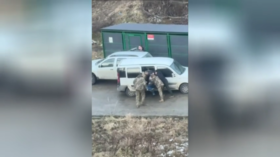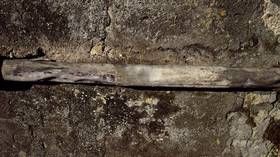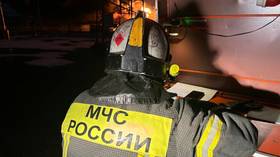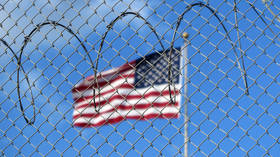Will NATO remain after Libyan war?
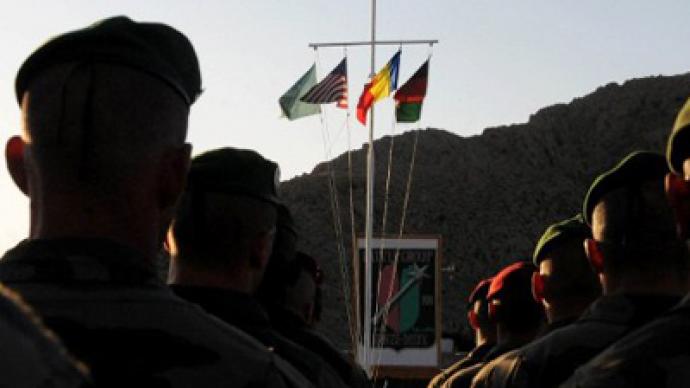
Russian political scientist Igor Panarin believes that the Libyan campaign, which ended October 31, demonstrated the weakness of NATO and revealed the military bloc's potential to collapse.
In the article below, Panarin explains his view. Will NATO still be there in 2016? Seems like a stupid question at first. Nothing is threatening NATO and nobody is questioning the bloc's further existence. That, however, is just the first impression… Driving up to the NATO campus in the outskirts of Brussels for the first time, I was slightly surprised to find that the image created over decades of zealous propaganda differed quite a lot from the real picture. In real life, this set of gray, drab-looking, totally identical buildings is puzzling at best. Are we looking at a 'paper tiger', whose might has been overblown by the global media? Is it just that 5 thousand NATO bureaucrats simply need to make a living… and to justify their existence? Besides, they must like living in Brussels as well. Tranquility, apathy even, reigns supreme in the NATO headquarters. Everybody inside walks slowly, as if drowsing. Laziness and complacency, regularity and cheerlessness are the first to catch your eye in the NATO HQ corridors. Well, of course, the NATO bureaucrats do work; they organize military operations, the latest of which took place in Libya. Gaddafi was perfectly suited for the role of the 'bad guy' to showcase the might and efficiency of NATO. After all, Gaddafi's army had old weapons and virtually no aviation or air defense. A perfect case for NATO to step in, isn’t it? However, there were skeptics as well: Robert Gates, then Secretary of Defense, protested, saying that his country, already paying 75% of all NATO military expenditure, did not need another military venture. In the end, however, US leaders upheld the idea of intervention. Key instigators of the military operation were the French, who had amassed quite a debt to Gaddafi. On March 19, they began bombing the government troops. Three independent operations began: the British, the French, and the American. Later, the allies were joined by air forces of Canada, Spain, Italy, Denmark, Belgium, Greece, Holland, Norway, and those of non-NATO-members Sweden, Qatar, Jordan, and the UAE. The naval operation to block the Libyan coast also involved vessels from Turkey and even Bulgaria and Romania.This patchwork coalition was initially coordinated by American leadership, but on 31 March NATO assumed overall command of the war effort, titled Operation Unified Protector (OUP). Once the air strikes commenced, many war planners and observers believed Gaddafi’s troops would break up and scatter in no time. However, this did not happen. The war was obviously becoming a protracted one, so NATO was forced to change its tactics. Despite repeatedly denying it in public, the alliance shifted its mission objective to destroying the Libyan armed forces and killing Colonel Gaddafi. To this end, the coalition deployed attack helicopters and spec ops units in Libya, and on the eve of the Battle of Tripoli the rebel troops were secretly reinforced by battle-hardened military professionals from Britain, France, Qatar and the United Arab Emirates. It was allied spec ops troops that stormed and captured the Gaddafi stronghold at Bab al-Azizia. Thus, a NATO-led operation that kicked off as a civilian protection effort unfolded into a full-scale military campaign. Despite NATO’s eventual triumph, the war in Libya has revealed its weak spots and generally proved that the alliance is a paper tiger after all. - It became apparent, for instance, that should the United States ever withdraw from the alliance, the latter will soon collapse: challenged by limited American involvement in the campaign, the European allies took over six months to defeat an enemy as weak as Libya. - Quite a few NATO allies refrained from engaging in OUP altogether, or limited their participation to a purely symbolic contribution (e.g. Romania). The non-NATO members of the coalition, Qatar and the UAE, proved much more committed to the war effort than some of the allies combined. Therefore, the Libya campaign has revealed deep-seated disunity within the alliance. - Since NATO has little efficiency given a lack of US engagement, it does not live up to being an inclusive military alliance designed for the protection of the Euro-Atlantic community. Instead, it comes across as a detachment of the US military machine, as well as a front for Washington to use whenever it needs to pass its own military gamble for a well-meaning international effort. The question is, will the United States remain in a position to afford paying for this expensive fig leaf when faced with a resurging crisis? Or will they abandon it and stick to relying on themselves and fighting strictly for their own purposes, the way they have done in Iraq and Afghanistan, where NATO’s engagement is effectively limited to sentry duties, while American GIs and local security forces take all the heat? On top of all that, it seems that some of the Europeans are starting to realize how much of a smoke screen NATO is. How long till they get fed up with having to waste their money on backing American military adventures in places that have nothing to do with European security? Therefore, the Libya campaign has unearthed a crisis festering within the world’s longest-standing military alliance. Given the severe economic downturn ravaging the Western economies, this systemic crisis may trigger a self-destructive process and eventually cause NATO to disintegrate.
Professor Igor Panarin, Doctor of Political Sciences, for RT
The statements, views and opinions expressed in this article are those of the author and do not necessarily represent those of RT.


